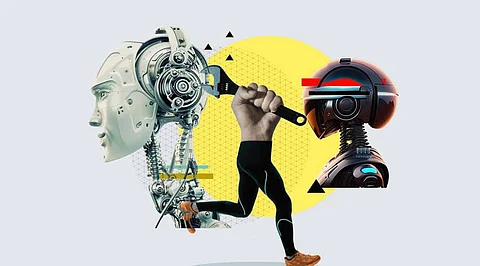

Artificial intelligence (AI) has revolutionized numerous industries, enabling automation, predictive analytics, and advanced decision-making. However, there are still sectors where AI tools have limited usefulness due to various challenges. Here are five sectors where AI tools currently face limitations:
The first sector where AI tools face challenges in healthcare. While AI has shown promise in this field, the complexity and variability of human health make it difficult for AI models to accurately diagnose and treat diverse conditions. Factors like patient privacy, data interoperability, and ethical concerns further hinder the widespread implementation of AI tools in healthcare.
AI has made significant progress in legal research and document review, but when it comes to complex legal reasoning and judgment, AI still struggles. Legal cases often involve intricate nuances, contextual understanding, and the consideration of subjective factors, which are difficult for AI algorithms to grasp. As a result, AI tools in the legal sector are currently limited to more repetitive and routine tasks.
Fields such as art, music, and literature heavily rely on human ingenuity and subjective interpretation. This poses a challenge for AI to replicate the depth of human creativity. While AI-generated art and music exist, they often lack the emotional depth and nuanced expressions that humans can achieve. Currently, AI tools in these sectors are more focused on assisting human creatives rather than replacing them.
AI-powered chatbots and virtual assistants have become common in this sector, but their limitations become apparent when handling complex and nuanced customer interactions. AI tools struggle to understand the intricacies of human emotions, cultural context, and individual preferences, which are essential for providing personalized and empathetic customer support.
AI tools face limitations when it comes to understanding complex human behavior, culture, and societal systems. Predicting human behavior and comprehending the dynamics of social interactions require more than just pattern recognition. The interpretative and qualitative aspects of social sciences are still better handled by human researchers, as AI struggles to capture the richness and context of social phenomena.
Join our WhatsApp Channel to get the latest news, exclusives and videos on WhatsApp
_____________
Disclaimer: Analytics Insight does not provide financial advice or guidance on cryptocurrencies and stocks. Also note that the cryptocurrencies mentioned/listed on the website could potentially be scams, i.e. designed to induce you to invest financial resources that may be lost forever and not be recoverable once investments are made. This article is provided for informational purposes and does not constitute investment advice. You are responsible for conducting your own research (DYOR) before making any investments. Read more about the financial risks involved here.
